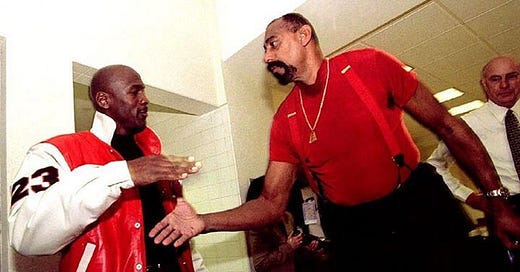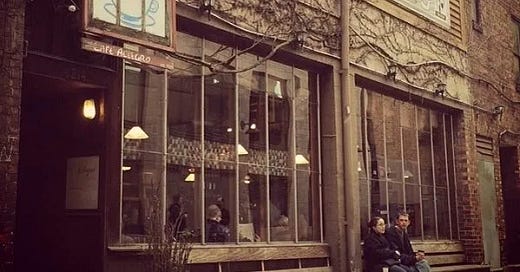One More Time: You Can't Make a Competitive Selection Process "Equitable"
Just briefly. I’m happy to say that Yale University has chosen to reinstate the SAT as an admissions criterion, although they stress that they are “test flexible.” I have written extensively about this topic, and the debate happens to fall within my area of academic focus. I won’t rehash everything I’ve said before here. Let me just stress one basic point: you cannot make a competitive selection process a tool for equality, as the entire point of competitive selection is to identify inequality.
What are fancy colleges doing when they sift through applications and say yes to one and no to another? When they push a bunch of applications into the immediate denial pile, select an anointed few as definite admits, and then ordinally rank a bunch of maybes, what are they doing? They’re saying, inherently, inevitably, “this student is not equal to this other student.” What are those students doing when they brag about themselves, list their accomplishments, try to impress the admissions officers? They’re saying, “I’m not like those other applicants, I’m better, we are unequal.” Meanwhile, what does going to a fancy college do for you, what does it mean in our society? Why do people covet that status? Because coming from one of those institutions signals to employers, graduate schools, and your social peers that you are in some sense better than others. That’s an impolite way to put it, but that’s the reality, why these hideously expensive diplomas are pursued so ardently. Harvard graduates, being insufferable, sometimes talk about “the H-bomb,” meaning the outsized social reaction that arises when they say where they went to school. And it’s a real thing. People treat you differently - that is, as unequal - when you go to one of these colleges. That’s why the competition to get in is so incredibly fierce!
College admissions, like employers selecting the right candidate for a job, is thus a) a process for defining how people are unequal relative to some selection criteria and b) a process which helps people assert how they are superior, and thus unequal, to other people. It’s the identification of inequality going in for the purpose of deepening inequality going out. What left-leaning people in this country have been doing for many decades now is to say, “we demand that this process becoming an instrument for increasing equality.” That makes no sense; those things are incompatible. I invite you to walk around the campus at Yale, take in everything happening there, and say to yourself, yes, this is an institution that could foster egalitarianism. The whole task of getting into Yale is to prove to the college that you aren’t like your peers, you’re better. The whole point of being a student at Yale is that, in innumerable ways, our society recognizes Yale graduates as being designated for success, more impressive, unequal to their peers. It’s a bizarre, bizarre thing to ask, to seek to make Yale a tool of equality. The Ivy League exists to reward, foster, and showcase inequality.
What people will say is that what they’re really looking for is to make the process of getting into Yale equal among all applicants. But this merely moves the incoherence around - the liberal dream of separating what is and is not a valid or fair influence on human capital is just that, a dream. We find it obvious that if a college is artificially hurting the chances of Black applicants being admitted, that’s an unjust denial of equality. But then, we also know empirically that at some schools, efforts to address perceived inequalities of access for Black and Hispanic students have become de facto impediments to Asian students of equal or better credentials, and yet many of the same people who lament the former justify the latter. Nor does the average liberal know what to do with the concept of intrinsic or inherent or latent or underlying aptitude or ability, the sometimes-banal, sometimes-wildly-controversial notion that not everyone has the same exact level of academic potential; is an applicant suffering because of their lack of intrinsic academic ability, which they did not choose, an impediment to meritocracy or simply an expression of what meritocracy is all about? If a poor student’s hardscrabble upbringing is an unfair disadvantage that we have a responsibility to ameliorate in the selection process, how about if a student’s middle class upbringing left them disinterested in reading because of their constant access to screens? Why is the former more inherently unjust than the latter? Since any human difference can be expressed as an inequality, the demand for equality of opportunity is chasing a phantom.
Of course, liberals will tell you that this is all so important because making colleges more “equitable” is the key to making our economic system more equal. You know my position on that: nominating higher education as the central means through which we attempt to improve people’s economic station was fundamentally misconceived from the beginning, it hasn’t worked, it isn’t working, it will never work. Look elsewhere.












